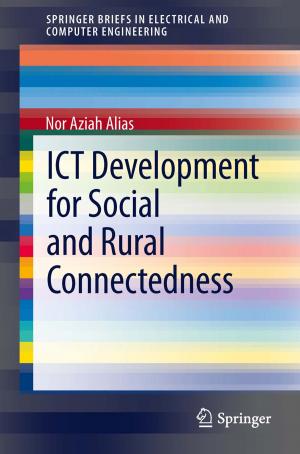Hybrid Tribunals
A Comparative Examination
Nonfiction, Reference & Language, Law, International, Social & Cultural Studies, Social Science, Crimes & Criminals, Criminology| Author: | Aaron Fichtelberg | ISBN: | 9781461466390 |
| Publisher: | Springer New York | Publication: | June 9, 2015 |
| Imprint: | Springer | Language: | English |
| Author: | Aaron Fichtelberg |
| ISBN: | 9781461466390 |
| Publisher: | Springer New York |
| Publication: | June 9, 2015 |
| Imprint: | Springer |
| Language: | English |
This book examines hybrid tribunals created in Sierra Leone, Kosovo, Cambodia, East Timor, and Lebanon, in terms of their origins (the political and social forces that led to their creation), the legal regimes that they used, their various institutional structures, and the challenges that they faced during their operations. Through this study, the author looks at both their successes and their shortcomings, and presents recommendations for the formation of future hybrid tribunals.
Hybrid tribunals are a form of the international justice where the judicial responsibility is shared between the international community and the local state where they function. These tribunals represent an important bridge between traditional international courts like the International Criminal Court (ICC), the International Criminal Tribunal for the Former Yugoslavia (ICTY), the International Criminal Tribunal for Rwanda (ICTR) and various local justice systems. Because hybrid tribunals are developed in response to large-scale atrocities, these courts are properly considered part of the international criminal justice system. This feature gives hybrid tribunals the accountability and legitimacy often lost in local justice systems; however, by including regional courtroom procedures and personnel, they are integrated into the local justice system in a way that allows a society to deal with its criminals on its own terms, at least in part.
This unique volume combines historical and legal analyses of these hybrid tribunals, placing them within a larger historical, political, and legal context. It will be of interest to researchers in Criminal Justice, International Studies, International Law, and related fields.
This book examines hybrid tribunals created in Sierra Leone, Kosovo, Cambodia, East Timor, and Lebanon, in terms of their origins (the political and social forces that led to their creation), the legal regimes that they used, their various institutional structures, and the challenges that they faced during their operations. Through this study, the author looks at both their successes and their shortcomings, and presents recommendations for the formation of future hybrid tribunals.
Hybrid tribunals are a form of the international justice where the judicial responsibility is shared between the international community and the local state where they function. These tribunals represent an important bridge between traditional international courts like the International Criminal Court (ICC), the International Criminal Tribunal for the Former Yugoslavia (ICTY), the International Criminal Tribunal for Rwanda (ICTR) and various local justice systems. Because hybrid tribunals are developed in response to large-scale atrocities, these courts are properly considered part of the international criminal justice system. This feature gives hybrid tribunals the accountability and legitimacy often lost in local justice systems; however, by including regional courtroom procedures and personnel, they are integrated into the local justice system in a way that allows a society to deal with its criminals on its own terms, at least in part.
This unique volume combines historical and legal analyses of these hybrid tribunals, placing them within a larger historical, political, and legal context. It will be of interest to researchers in Criminal Justice, International Studies, International Law, and related fields.















